12 Must-Read Social Skills Books for Adults & Kids
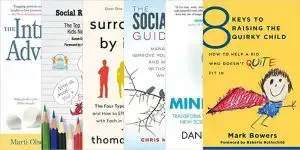 Do you ever feel overwhelmed by social situations at work or in your personal life?
Do you ever feel overwhelmed by social situations at work or in your personal life?
Do you ever get frustrated that other people seem to be naturally charismatic and can navigate social situations with ease, while you struggle to communicate your wants and needs?
Being able to communicate effectively is an important skill that preludes the ability to be successful in a variety of contexts. Whether it’s getting that promotion you have always wanted or meeting the love of your life, being able to function socially is an important part of everyday life.
This article will provide you with the best books to help you practice social skills, understand your personality type, and help a child or teenager struggling to navigate the social world.
Before you continue, we thought you might like to download our three Self-Compassion Exercises for free. These detailed, science-based exercises will help you increase the compassion and kindness you show yourself and give you the tools to help your clients, students, or employees show more compassion to themselves.
This Article Contains:
7 Books for Helping Adults Develop Social Skills
The literature on helping adults develop social skills is so widely varied that we have provided two categories to help you better find what you are looking for. The categories include:
- Guidebooks for social skill development
Books that focus on helping you develop the skills you need for social interactions in various school and workplace contexts. - Personality types and their impact on social skills
These books focus on identifying why we are the way we are. These books may have more of a biological focus, as they look at different brain and personality types that help frame one’s social responses.
Guidebooks for social skill development
1. Conversationally Speaking: Tested New Ways to Increase Your Personal and Social Effectiveness – Alan Garner
Garner has published three versions of Conversationally Speaking and is also known for his in-person workshops.
His motivation for writing these books is to teach these skills to people who are experiencing loneliness and depression because of being unable to connect with others.
After taking a conversation class at a university, Garner made it his mission to teach these skills to other people who were struggling with similar issues, as his life improved drastically upon completing this course.
The book focuses on promoting effective conversational skills in all aspects of your social interactions. More specifically, the book goes into detail about the importance of asking open- and close-ended questions to help individuals attain clear objectives when engaging in conversations.
Find the book on Amazon.
2. Simple Small Talk: An Everyday Social Skills Guidebook for Introverts on How to Lose Fear and Talk to New People – Gerard Shaw
Shaw (2019, p. 5) defines small talk as “light and informal conversation that is used when talking to someone you do not know very well.”
Small talk can take place in professional as well as social settings, so it is an important skill to be comfortable with.
Shaw provides guidelines using a combination of case studies and specific conversation starters, guidance on nonverbal cues, and exit strategies to aid individuals in developing the skills necessary to develop small talk.
This book is extremely accessible and is geared toward individuals looking to develop these skills in business and personal settings.
Even though this book does not provide reference to specific interactions, its generalist approach is suitable for anyone looking to develop small talk or introductory skills in conversations, as they are the building blocks for developing more intimate relationships.
Find the book on Amazon.
3. PeopleSmart: Developing Your Interpersonal Intelligence – Melvin L. Silberman
Have you ever wondered about the specific interpersonal skills you need to succeed?
This book provides a practical guide with eight skills readers need to develop to succeed in specific interpersonal contexts.
Silberman has created a PeopleSmart IQ scale, which is introduced in the second chapter. He encourages participants to take the self-assessment before reading the book, as the scale asks questions about how proficient the reader feels in putting each of the eight skills to practice.
The book provides several links to general social contexts, and many of the examples and strategies are highly relevant for professional settings, making this a superb choice for individuals looking to develop their assertiveness and leadership skills.
Find the book on Amazon.
4. The Social Skills Guidebook: Manage Shyness, Improve Your Conversations, and Make Friends, Without Giving Up Who You Are – Chris MacLeod
Do you have trouble introducing yourself to new people and breaking the ice with friends?
This book functions as a social guidebook intending to improve your social skills, while still maintaining a strong sense of self.
There are specific strategies that the book provides to help individuals challenge counterproductive thinking, overcome awkward silences, and interact in a variety of conversational settings (in a group and one-to-one).
It does this by providing specific settings where individuals can improve these skills and different workable strategies depending on your personality. The book’s workable strategies and breakdown make it ideal for individuals looking to improve their general ability to socialize, as opposed to a specific setting or intent.
Find the book on Amazon.
Personality types and their impact on social skills
1. Mindsight: Transform Your Brain With the New Science of Kindness – Daniel Siegel
This book is focused on integrating brain science with psychology to develop Siegel’s ‘mindsight’ concept.
Siegel provides readers with an overview of how mindsight shapes our perspectives and mental health, connecting our biological processes with case studies from his own patients.
Siegel emphasizes that past experiences shape our future reactions and should be more widely examined when trying to understand one’s behavior in different situations.
Although this book may not be directly connected to the development of social skills, individuals looking to understand the nature of their reactions to specific social situations can use Siegel’s approach.
Understanding how their past experiences may have shaped how they react socially will allow readers to become more mindful about the ‘why’ behind their actions.
Find the book on Amazon.
An introduction to mindsight by Daniel J. Siegel
2. The Introvert Advantage: How Quiet People Can Thrive in an Extrovert World – Marti Olsen Laney
When examining personality characteristics, the most common classification is that between introversion and extroversion.
An introvert is classified as an individual who focuses inward on ideas, emotions, and impressions. They can be easily overstimulated by the external world, which results in a feeling that many introverts describe as “too much” (Olsen Laney, 2002, p. 19).
While extroverts need to expend energy in order to recharge, introverts need to stop expending energy and rest.
This book aims to help individuals who classify themselves as introverts recognize their strengths and analytical potential. It also provides workable strategies for introverts to succeed at work and form meaningful relationships with family, friends, and colleagues.
It also provides strategies for introverted individuals to preserve their energy and coping mechanisms to help recover when exposed to more taxing social situations.
Find the book on Amazon.
3. Surrounded by Idiots: The Four Types of Human Behavior and How to Effectively Communicate With Each in Business (and in Life) – Thomas Erikson
Erikson provides readers with different color-coded personality classifications (yellow, red, blue, and green) representing a key component of human behavior for each of the colors.
Erikson divides each color by chapter and lists specific behaviors and traits that readers can relate to; he states that about 80% of people are governed by a combination of two colors.
The book aims to give readers the tools to understand themselves and the people around them with the goal of improving communication through understanding one’s motivations and behavior.
This is a good general book for individuals looking to gain a basic understanding of personality theory and learn how to communicate with people with different traits.
Find the book on Amazon.
Top 6 Books for Teaching Social Skills to Kids
Teaching social skills to kids is an essential part of equipping them to succeed in the world.
Children who display stronger social competence (i.e., sharing, cooperation, and helping others) are more likely to attain higher education and get higher paying jobs than children who struggle with social competence (Robert Wood Johnson Foundation, 2015).
It is important to provide educators, parents, and other helping professionals with resources to help them understand how social skills develop in children and information about the theory behind child development.
It is equally important for children and teenagers to have resources to help them facilitate the development of their own personality and social skills.
This section is divided into two parts:
- Workbooks for children and teens
These books are meant for the child and provide different activities targeted at developing and fostering social skills. - Resources for helping professionals and parents
Although they also provide activities to help foster social skills and may have sections that cater to the development of social skills, these books are meant to provide adults with an understanding of how to foster social skills in children.
Workbooks for children and teens
1. Let’s Be Friends: A Workbook to Help Kids Learn Social Skills & Make Great Friends – Lawrence Shapiro
Shapiro’s book provides a combination of reflective and actionable strategies for children to implement when developing friendships.
Each chapter starts off with a motivational quote or statement to build the reader’s self-esteem while working through the more sensitive issues that the book brings up regarding interacting with others.
The activities help children develop self-awareness and reflect on their behavior in social situations. In addition, they are relevant to the social challenges that children face in today’s world, as there are several activities focused on online etiquette and writing an email to a friend.
This book would be most relevant for children between the ages of 10–16 years, as a few of the activities are a bit complex and require a higher level of comprehension.
Find the book on Amazon.
2. Growing Friendships: A Kid’s Guide to Making and Keeping Friends – Dr. Eileen Kennedy-Moore and Christine McLaughlin
This book provides case studies and personal stories that document social challenges that children might experience.
Instead of providing activities, Kennedy-Moore and McLaughlin lay out the challenges in easy-to-follow comics and advice that is relevant to each situation.
The advice is backed up by pictures documenting how the characters are reacting, giving children an idea of how others might respond in different situations.
Since the book focuses on guiding children through the steps to make and keep friends in different situations, it would be most helpful for younger children between 6 and 12 years old.
The pictures allow children to visualize appropriate behavior and immediately make the connection between their personal experiences and what the characters are saying.
Find the book on Amazon.
3. The Social Success Workbook for Teens – Barbara Cooper and Nancy Widdows
This book is an excellent resource for teenagers who need to expand their social skills and have clinical diagnoses such as autism or nonverbal disorders.
The workbook focuses on cool-down strategies and recognizing difficult emotions that teenagers with more prominent social disorders might experience when entering unfamiliar or difficult situations.
Besides providing several strategies surrounding emotional recognition, the book also provides self-esteem building exercises to help teenagers understand their strengths.
Since the book is specifically designed for teenagers who may have autism and other diagnosed social skill issues, there is less text and more of a focus on pictures and drawing one’s emotions, which makes it an excellent resource for teenagers who also have learning disabilities and struggle to read a lot of text.
Find the book on Amazon.
Resources for helping professionals and parents
1. Social Rules for Kids: The Top 100 Social Rules Kids Need to Succeed – Susan Diamond
Looking for a book you can read alongside your child?
This book is designed to facilitate conversation between parents and children about social skills and communication.
The book has activities that children and parents can work through together that allow them to share their experiences and also provide positive education on how to act in specific situations.
Several scenarios also provide role-playing activities, which are a great opportunity for parents and children to put their skills to the test.
Acting out difficult social scenarios with a trusted adult is a great way for parents and children to gain more awareness of each other’s perspective.
Find the book on Amazon.
2. 8 Keys to Raising the Quirky Child: How to Help a Kid Who Doesn’t (Quite) Fit In – Mark Bowers
This book provides benchmarks for parents to identify if their child is facing social challenges or “quirkiness.”
Bowers starts off by giving parents specific characteristics that are developmentally not appropriate and that may be a cause for concern in their child’s social development.
In addition, Bowers offers strategies for parents to understand how their child’s brain works when they display these characteristics and provides specific strategies to further assist them.
The benchmarks and characterization of these children as quirky allow for easy accessibility, and this book can be used to identify signs that a child is experiencing difficulty.
It is a good starting point for parents looking to better understand their child’s behavior, and it is not limited by diagnostic criteria.
Find the book on Amazon.
PositivePsychology.com’s Helpful Resources
The Positive Relationships Masterclass© aims to help participants build healthy relationships and increase wellbeing, as well as life satisfaction. The program provides key principles of relationships and the tools to build supportive, loving bonds with people. Understanding how to build healthy and positive relationships is a key social skill that individuals of all ages can use to attain personal satisfaction.
Our Positive Psychology Toolkit© also provides several resources to help facilitate healthy communication and develop social skills. These exercises on setting boundaries, listening without solving, and giving negative feedback, provide positive guidance on how to deal with more difficult social situations that people might struggle with in their everyday life.
In addition to our selection of masterclasses and the helpful Toolkit, we have another article well worth reading that provides Educational Psychology books, interventions, and apps for those interested in educational psychology.
If you’re looking for more science-based ways to help others communicate better, this collection contains 17 validated positive communication tools for practitioners. Use them to help others improve their communication skills and form deeper and more positive relationships.
A Take-Home Message
Your personality impacts your social reactions in everyday situations, but that should not hold you back. Understanding yourself and others around you is a good starting point to improve your social interactions.
Books that assist in the development of social skills will give you a better understanding of how your personality can impact your social reactions in everyday situations.
An important thing to remember when working on improving your social muscle is to take it one day and one situation at a time. Progress does not happen overnight, and sometimes, strategies that work for others may not work for you.
You can also consider reading our article ‘11 Social Skills Worksheets for Seamless Social Interactions‘ which provides social skills worksheets if you wish to go beyond reading to improve your skill set.
Feel free to consult a wide breadth of resources and seek advice from a trained therapist or coach if you still find yourself struggling to be your best self.
If you are willing to put in the work, you will get there. Please share your thoughts on the books recommended in this article and any other resources that you have found to be helpful on your journey to become more socially attuned.
We hope you enjoyed reading this article. Don’t forget to download our three Self-Compassion Exercises for free.
- Bowers, M. (2015). 8 Keys to raising the quirky child: How to help a kid who doesn’t (quite) fit in. W. W. Norton.
- Cooper, B., & Widdows, N. (2008). The social success workbook for teens. Instant Help.
- Diamond, S. (2011). Social rules for kids: The top 100 social rules kids need to succeed. AAPC.
- Erikson, T. (2019). Surrounded by idiots: The four types of human behavior and how to effectively communicate with each in business (and in life). St. Martin’s Essentials.
- Garner, A. (1997). Conversationally speaking: Tested new ways to increase your personal and social effectiveness. McGraw-Hill Education.
- Kennedy-Moore, E., & McLaughlin, C. (2017). Growing friendships: A kids’ guide to making and keeping friends. Aladdin/Beyond Words.
- MacLeod, C. (2016). The social skills guidebook: Manage shyness, improve your conversations, and make friends, without giving up who you are. Author.
- Olsen Laney, M. (2002). The introvert advantage: How quiet people can thrive in an extrovert world. Workman.
- Robert Wood Johnson Foundation. (2015). How children’s social skills impact success in adulthood: Findings from a 20-year study on the outcomes of children screened in kindergarten. Retrieved April 16, 2021, from https://eric.ed.gov/?id=ED592871
- Shapiro, L. E. (2008). Let’s be friends: A workbook to help kids learn social skills & make great friends. Instant Help.
- Shaw, G. (2019). Simple small talk: An everyday social skills guidebook for introverts on how to lose fear and talk to new people. Digital Press.
- Siegel, D. J. (2011). Mindsight: Transform your brain with the new science of kindness. ONEWorld.
- Silberman, M. L. (2000). PeopleSmart: Developing your interpersonal intelligence. Berrett-Koehler.
Let us know your thoughts
Read other articles by their category
- Body & Brain (42)
- Coaching & Application (54)
- Compassion (26)
- Counseling (50)
- Emotional Intelligence (24)
- Gratitude (18)
- Grief & Bereavement (21)
- Happiness & SWB (39)
- Meaning & Values (25)
- Meditation (20)
- Mindfulness (44)
- Motivation & Goals (43)
- Optimism & Mindset (32)
- Positive CBT (25)
- Positive Communication (20)
- Positive Education (44)
- Positive Emotions (30)
- Positive Leadership (13)
- Positive Psychology (32)
- Positive Workplace (33)
- Productivity (16)
- Relationships (41)
- Resilience & Coping (34)
- Self Awareness (20)
- Self Esteem (36)
- Software & Apps (13)
- Strengths & Virtues (30)
- Stress & Burnout Prevention (33)
- Theory & Books (44)
- Therapy Exercises (35)
- Types of Therapy (58)
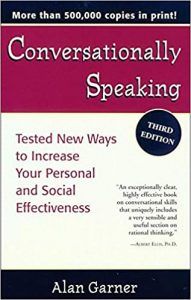
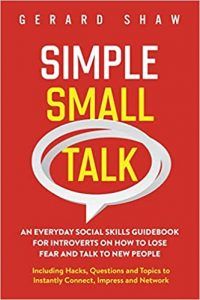
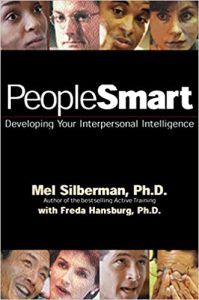
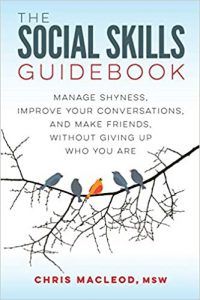
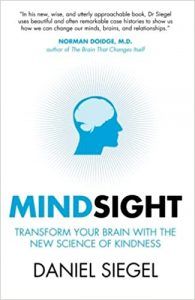

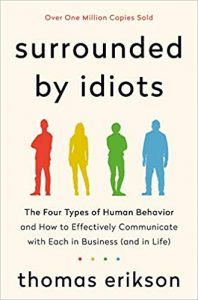

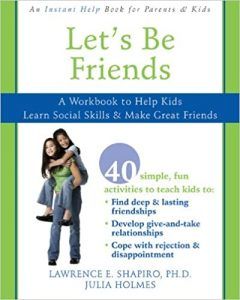
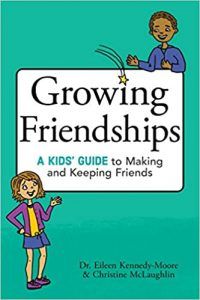
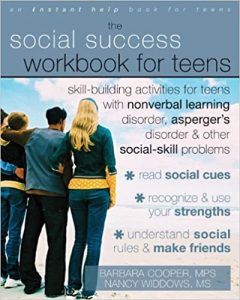
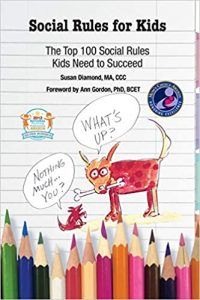
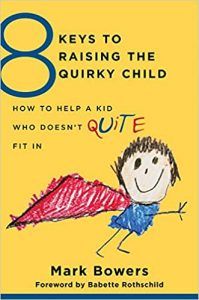



What our readers think
Your textual content was so interesting and informative.
Many thanks for sending me this useful and fruitful article. I really enjoyed reading it and I hope to be in touch with you all the time.
Best regards for you all